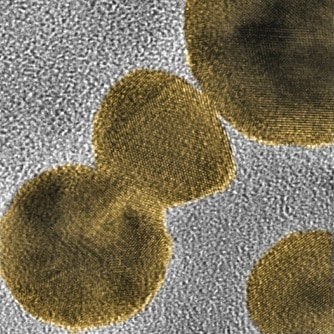Most nanoparticles enter cells through endocytosis, a process that traps the particles in intracellular compartments, which can damage the cell membrane and cause cell contents to leak out. Previous research at the Massachusetts Institute of Technology (Massachusetts, USA), revealed that a special class of gold nanoparticles coated with a mix of molecules could enter cells without any disruption. The MIT materials scientists have discovered that these nanoparticles enter cells by taking advantage of a route normally used in vesicle-vesicle fusion, a crucial process that allows signal transmission between neurons. The findings suggest possible strategies for designing nanoparticles — made from gold or other materials — that could get into cells even more easily.
Gold Nanoparticles for Drug Delivery
Reid C. Van Lehn, Maria Ricci, Paulo H.J. Silva, Patrizia Andreozzi, Javier Reguera, et al. “Lipid tail protrusions mediate the insertion of nanoparticles into model cell membranes.” Nature Communications 5, 21 July 2014.
RELATED ARTICLES




